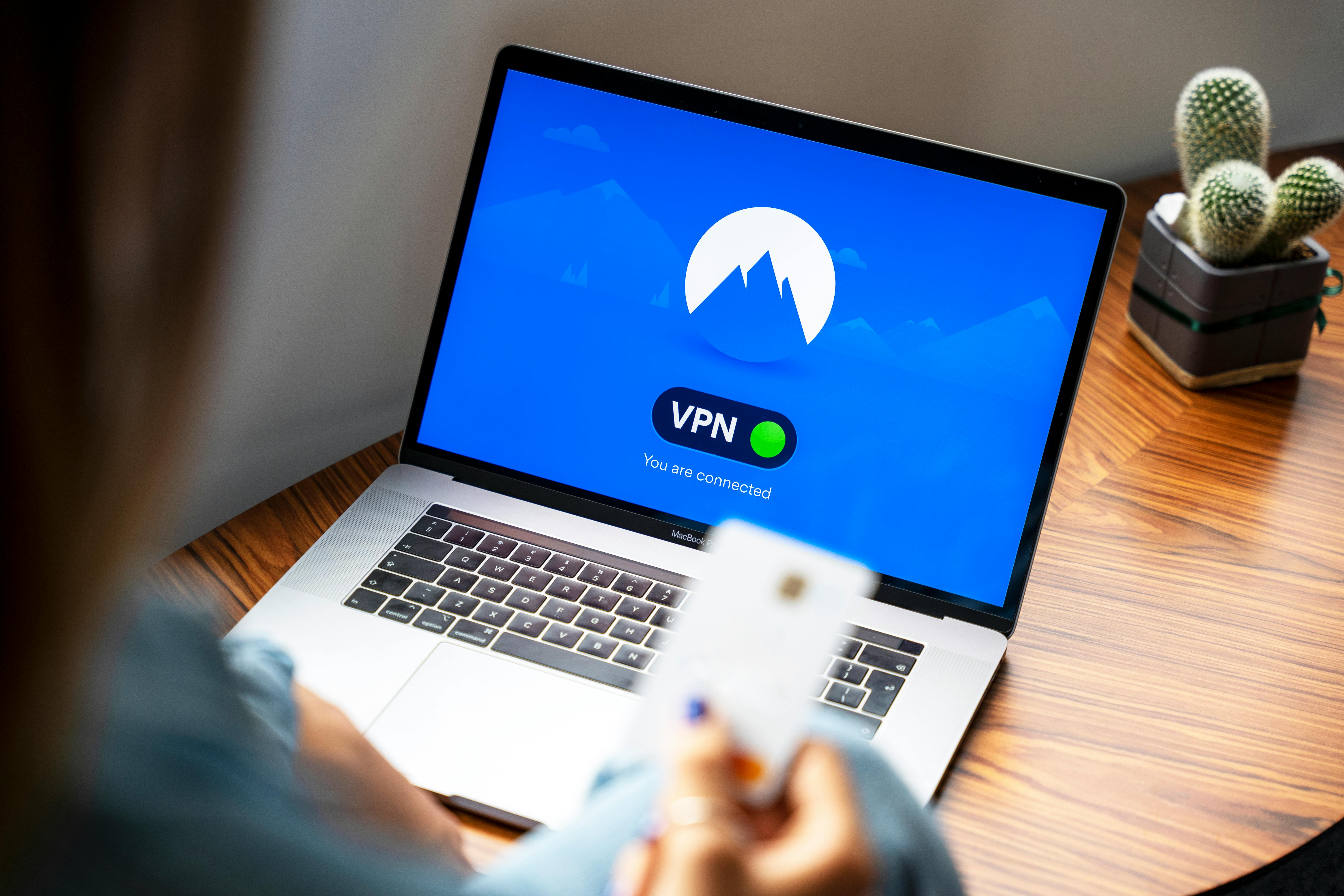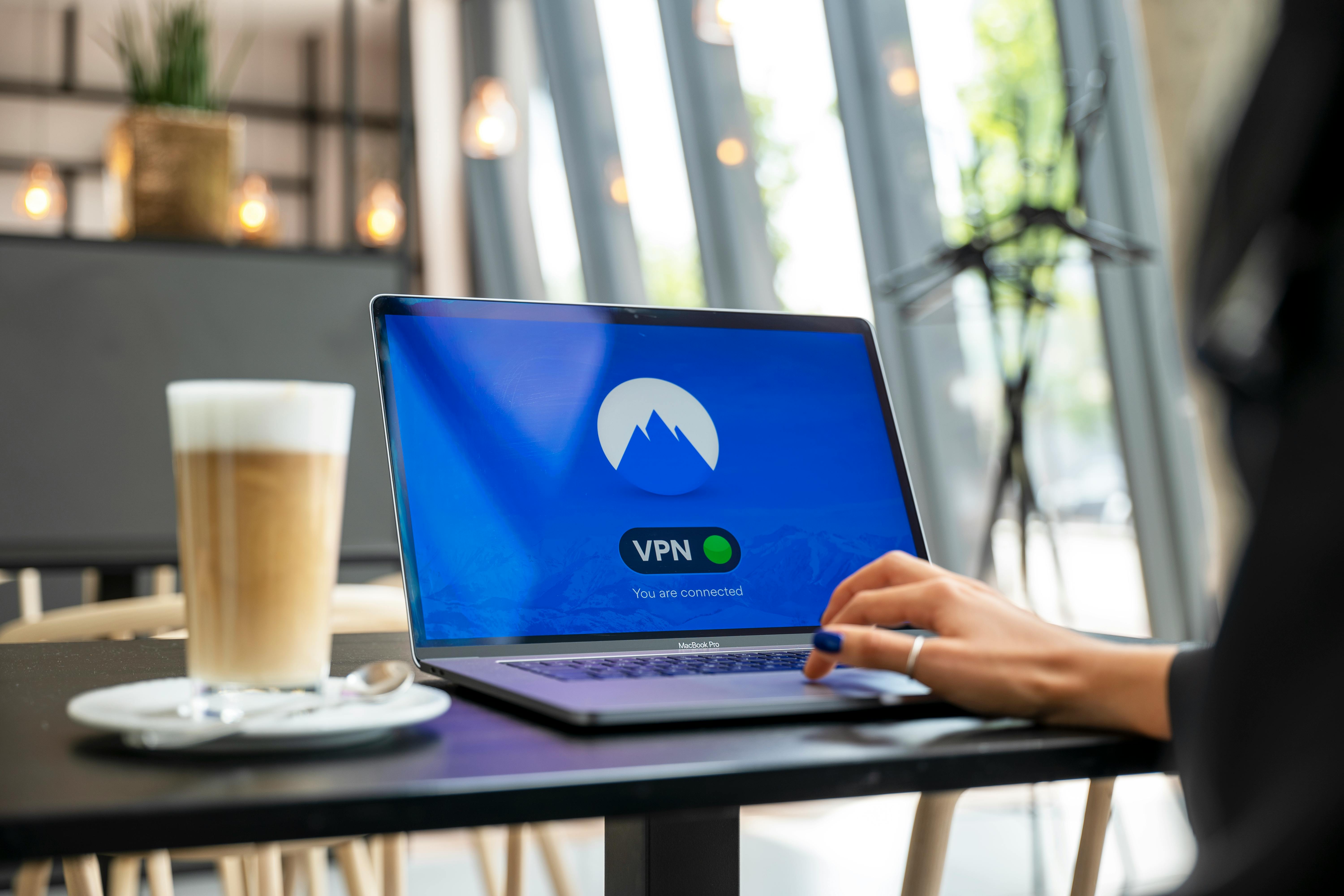In today’s digital age, privacy is more crucial than ever, especially when using a VPN on Windows 11. Many users are unaware of the potential VPN leaks that can expose their sensitive information, making it imperative to learn effective leak prevention tips. If you’re wondering how to keep your online activities truly private while using Windows 11, you’ve come to the right place! This article will delve into essential strategies to ensure your VPN connection remains secure and leak-free.
Understanding the significance of VPN leak prevention is vital for anyone who values their online anonymity. With the increasing number of cyber threats and data breaches, knowing how to maintain your privacy is a must. Did you know that even the best VPNs can have vulnerabilities? That’s right! It’s not just about choosing a reliable VPN service; it’s also about implementing the right steps to safeguard your connection.
In the following sections, we will explore actionable tips to help you prevent IP leaks, DNS leaks, and WebRTC leaks on Windows 11. Whether you’re a seasoned techie or a newbie, these practical guidelines will empower you to take control of your online security. So, are you ready to discover how to fortify your VPN connection and keep your privacy intact? Let’s dive in and ensure your Windows 11 experience is not just smooth but also secure!
Top 7 Essential VPN Leak Prevention Techniques for Windows 11 Users

In the digital world we live in today, privacy is a big deal. Windows 11 users, in particular, need to take care of their online security, especially when using VPNs. VPNs are great for masking your IP address but they can leak your data if not managed correctly. So, if you want to keep your privacy intact, check out these Top 7 Essential VPN Leak Prevention Techniques.
Use a Reliable VPN Service
First thing’s first, choosing the right VPN is crucial. Not all VPNs are created equal. Look for one that has a strong reputation for security and privacy. Features like a no-logs policy, strong encryption, and a good track record against leaks are what you should be looking for. Some popular options include NordVPN, ExpressVPN, and Surfshark.
Enable the Kill Switch Feature
Most high-quality VPN services offer a kill switch. This feature cut your internet connection if the VPN drops, preventing data leaks. Without a kill switch, your real IP address could be exposed. Make sure this feature is activated in your VPN settings. It’s a simple step that can save you a lot of trouble.
DNS Leak Protection
DNS leaks can happen when your DNS requests aren’t routed through the VPN. It means your ISP can still see what websites you visit. Ensure that your VPN has DNS leak protection to prevent this. You can test for DNS leaks by using online tools such as DNSLeakTest.com.
Test for IP and WebRTC Leaks
It’s important to regularly test if your VPN is leaking your IP address or WebRTC information. You can use websites like ipleak.net or browserleaks.com to check. If you notice your real IP address is showing up, then it’s time to switch settings or even consider a different VPN.
Use Strong Encryption Protocols
The encryption protocol your VPN uses can affect your security. OpenVPN is generally recommended for its strong security features. If you’re using Windows 11, make sure that your VPN is set to use a strong and secure protocol. This will help ensure your data is kept safe.
Keep Your Software Updated
Keeping your VPN software updated is crucial. VPN providers regularly release updates to patch vulnerabilities and improve security. So, always check for updates and install them. This is a simple way to ensure you are protected against the latest threats.
Disable IPv6
IPv6 can create potential leaks if your VPN doesn’t fully support it. If you can, disable IPv6 in your network settings on Windows 11. Most VPNs primarily work with IPv4, and disabling IPv6 can help reduce the chance of leaks occurring.
So, there you have it! Following these Windows 11 VPN leak prevention tips can go a long way in keeping your online activities private. Protecting your data should be a priority, and these techniques can help. Whether you’re watching your favorite shows or managing sensitive information, you deserve to surf the web without fear of being watched. Remember, a little effort can make a huge difference in your online privacy!
How to Detect and Fix VPN Leaks on Windows 11: A Step-by-Step Guide

In today’s digital age, protecting your privacy is more crucial than it ever was. Using a VPN (Virtual Private Network) can help keep your online activities private, but sometimes they leak. If you’re using Windows 11, knowing how to detect and fix VPN leaks is essential to maintain your privacy intact. This guide is gonna walk you through the steps to identify and address these leaks.
What is a VPN Leak?
VPN leaks occur when your real IP address or other sensitive data is exposed while using a VPN. This means that even though you’re connected to a VPN, your information can still be visible to websites or third parties. Two common types of leaks are DNS and IP leaks.
- DNS Leak: This happens when DNS requests are sent outside the VPN tunnel, revealing your browsing activity.
- IP Leak: This occurs when your actual IP address is exposed, which can happen due to misconfigured settings.
How to Detect VPN Leaks on Windows 11
Detecting VPN leaks is simple if you know the right steps. Here’s how you can do it:
- Connect to Your VPN. First, make sure you’re connected to the VPN service.
- Visit a Leak Test Website. Go to websites like ipleak.net or dnsleaktest.com. These sites help you check for leaks efficiently.
- Check Your IP Address. If the website displays your real IP address instead of the VPN’s, you have an IP leak.
- Check DNS Requests. Look at the DNS addresses shown. If they’re not those of your VPN provider, it indicates a DNS leak.
Fixing VPN Leaks on Windows 11
Fixing leaks can be a bit tricky but follow these steps to help secure your connection:
- Change VPN Server: Sometimes, the issue is with the server you’re connected to. Try switching to a different server offered by your VPN provider.
- Use a Reliable VPN Service: Not all VPNs are created equal. Make sure you use a reputable VPN service that’s known for its security features.
- Enable the Kill Switch: Most VPNs have a kill switch feature. This cuts off your internet if the VPN connection drops, preventing any leaks.
- Adjust Network Settings: Go to your network adapter settings and change the DNS settings to use your VPN’s DNS servers.
- Update Your VPN Software: Ensure your VPN application is always up-to-date. Developers frequently address vulnerabilities and bugs in updates.
Windows 11 VPN Leak Prevention Tips
Preventing VPN leaks is just as important as detecting them. Here are some practical tips:
- Regularly Check for Leaks: Make it a habit to check for leaks regularly. This ensures your VPN is working correctly.
- Use Strong Encryption: Opt for VPN services that provide strong encryption protocols like OpenVPN or WireGuard.
- Avoid Free VPNs: Free VPNs often lack robust security features and could expose you to leaks.
- Limit Permissions: Be cautious about which applications you allow to bypass your VPN. Limiting permissions reduces the risk of leaks.
- Educate Yourself: Stay informed about the latest security practices and technologies related to VPNs.
Understanding how to detect and fix VPN leaks on Windows 11 can significantly boost your online privacy. By implementing these tips and tricks, you can ensure that your personal information stays safe from prying eyes. Keeping your privacy intact isn’t just a choice; it’s a necessity in today’s world. Stay vigilant and protect your digital presence.
The Ultimate Checklist for Securing Your Windows 11 VPN Connection

In today’s digital age, securing your online presence is more important than ever, especially when using a Virtual Private Network (VPN) on Windows 11. With increasing cyber threats, it’s crucial to ensure that your VPN connection remains private and protected. This ultimate checklist will help you navigate the complexities of VPN leak prevention on Windows 11, keeping your online activities secure and your personal information private.
Understanding VPN Leaks
A VPN leak occurs when your real IP address is exposed while using a VPN. This can happen due to several reasons, such as software bugs, misconfigurations, or even issues with your network. If you’re not careful, you might think you’re protected, but your data could still be vulnerable. Knowing how to prevent these leaks is essential for maintaining your privacy.
Windows 11 VPN Leak Prevention Tips
Here are some effective strategies to ensure your VPN connection remains leak-proof:
Choose a Reputable VPN Provider: Not all VPNs are created equal. Some have better leak protection features than others. Look for a provider with a solid reputation and positive reviews. Features like a kill switch and DNS leak protection can be crucial.
Enable the Kill Switch: A kill switch is a must-have feature that disconnects your internet if the VPN connection drops. This prevents your data from being exposed. Make sure to enable this option in your VPN settings.
Check for DNS Leaks: Regularly test your VPN for DNS leaks using online tools. If your DNS requests are sent outside the VPN tunnel, your ISP can see your activity. Tools like DNSLeakTest.com can help you identify any potential issues.
Use IPv6 Leak Protection: Windows 11 supports IPv6, but not all VPNs do. If your VPN does not support IPv6, disable it in your network settings to avoid leaks. Go to Network & Internet settings, then to Ethernet or Wi-Fi, and disable IPv6.
Regularly Update Your VPN Software: Keeping your VPN software up to date is important. Updates often include security patches that fix vulnerabilities and improve leak protection.
Configure Firewall Settings: A properly configured firewall can add an extra layer of security. Make sure it’s set to block any non-VPN traffic. This ensures that if your VPN connection fails, your data will not leak.
Checklist for Securing Your Windows 11 VPN Connection
To make things easier, here’s a handy checklist to follow:
- [ ] Choose a reliable VPN provider.
- [ ] Enable the kill switch feature in settings.
- [ ] Test for DNS leaks regularly.
- [ ] Disable IPv6 if your VPN doesn’t support it.
- [ ] Update your VPN software regularly.
- [ ] Configure your firewall to block non-VPN traffic.
- [ ] Monitor your VPN connection status frequently.
Common VPN Misconfigurations
Sometimes issues arise due to misconfigurations. Here’s a list of common mistakes that can lead to VPN leaks:
- Not enabling the kill switch: Without this, you risk exposing your IP address.
- Ignoring updates: Outdated software can lead to vulnerabilities.
- Using free VPNs: Many free VPN services sell data or have poor security.
Practical Example
Let’s say you’re using a VPN to access content restricted to a specific country. If your VPN leaks, your actual location could be revealed, and you might face legal issues or be banned from accessing that content. By following the checklist and tips above, you can minimize the risk and enjoy safer browsing.
Securing your Windows 11 VPN connection is not just about installing software; it’s about being proactive with your privacy. By taking the time to implement these strategies, you can ensure that your online activities remain your business alone, free from unwanted exposure.
Are You at Risk? Signs Your Windows 11 VPN Might Be Leaking Data

Are you using a Windows 11 VPN and feeling a bit uneasy about your online privacy? You ain’t alone. A lot of folks are wondering if their VPN is really protecting them or if it’s leaking their data. Knowing the signs can be crucial, especially in today’s digital world where privacy matters more than ever. In this article, we’re gonna explore the warning signs of a leaking VPN, and some handy tips for preventing those leaks.
Signs Your Windows 11 VPN Might Be Leaking Data
IP Address Exposure: If you’re checking your IP address online and it don’t match the one provided by your VPN, that’s a big red flag. Ideally, your VPN should mask your real IP address.
DNS Leaks: Your DNS queries should be handled by the VPN’s server. If your internet service provider (ISP) can see your DNS requests, it’s likely your VPN has a leak. You can test this using various online tools that check for DNS leaks.
WebRTC Leaks: This is a feature used by browsers to enable real-time communication. If your browser is leaking your true IP through WebRTC, it’s an issue. You might need to disable it or change browser settings.
Slow Speeds: If you notice a sudden drop in speed while connected to the VPN, it might not be optimizing your connection properly, which can lead to data leaks.
Inconsistent Connectivity: Regular disconnects or unstable connections could also hint at issues with your VPN, making it more likely to leak data.
Windows 11 VPN Leak Prevention Tips: Keep Your Privacy Intact
To keep your data safe, here are some simple yet effective tips you can follow:
Choose a Reliable VPN: It’s crucial to pick a VPN service that has a good reputation and offers leak protection features. Do your research and read reviews.
Enable Kill Switch: Most good VPNs have a kill switch feature. This cuts off your internet connection when the VPN drops, preventing any data from leaking.
Regularly Check for Leaks: Make it a habit to check for IP, DNS, and WebRTC leaks frequently. There are multiple websites like ipleak.net that make this super easy.
Update Your VPN Software: Keeping your VPN software updated ensures you have the latest security patches and features. Developers regularly fix vulnerabilities, so don’t slack on updates.
Disable IPv6: Many VPNs don’t support IPv6 properly. Disabling it can prevent potential leaks.
Use Strong Encryption: Ensure your VPN uses strong encryption protocols like OpenVPN or WireGuard. Weak encryption can lead to vulnerabilities and potential leaks.
Comparison of Popular VPNs for Windows 11
| VPN Service | Leak Protection | Speed | Price |
|---|---|---|---|
| NordVPN | Yes | High | $3.71/mo |
| ExpressVPN | Yes | Very High | $6.67/mo |
| CyberGhost | Yes | Medium | $2.75/mo |
| Surfshark | Yes | High | $2.49/mo |
This table shows how different VPNs measure up in terms of leak protection, speed, and price. Choosing the right one can make a huge difference in your online safety.
Staying protected online is essential, especially with constant threats to privacy. By being aware of the signs that point to a leaking VPN and implementing the prevention tips provided, you can help ensure that your data remains secure. Remember, it’s always better to take a proactive approach to your online security rather than waiting for something to go wrong. Your digital life is worth protecting!
Expert Tips: Boost Your Windows 11 VPN Security with These Proven Methods

In today’s digital age, ensuring your online privacy is vital, especially with the rise of cyber threats. Windows 11 users often rely on Virtual Private Networks (VPNs) to enhance their security, but not all VPNs are foolproof. In fact, there are several steps you can take to boost your Windows 11 VPN security, ensuring your data remains private and protected. Here are some expert tips that can help you with that.
Understand VPN Leaks
VPN leaks can happen without you even knowing. They can expose your IP address and compromise your security. Therefore it’s crucial to know what types of leaks exist. Here’s a breakdown:
- DNS Leaks: Occurs when your DNS requests are sent outside the encrypted VPN tunnel.
- IP Leaks: Happens when your real IP address is exposed.
- WebRTC Leaks: Can expose your IP address when using browsers that support WebRTC.
Check Your VPN for Leaks
Before using a VPN, it’s important to test it for leaks. There are various tools available online that can help you determine if your VPN is leaking information. Here’s how you can do it:
- Connect to your VPN.
- Visit a leak test website (like ipleak.net).
- Check your IP address and other information displayed.
If there’s any discrepancy between your real IP and the one shown, your VPN is leaking.
Use a Reliable VPN Service
Not all VPN services are created equal. When choosing a VPN for Windows 11, look for these features:
- No-logs policy: This means the service doesn’t keep records of your online activities.
- Kill switch: Automatically disconnects your internet if the VPN connection drops.
- Strong encryption: At least AES-256 encryption for maximum safety.
Some of the popular VPNs that are known for their security features include NordVPN, ExpressVPN, and CyberGhost.
Enable the Kill Switch
A key feature often overlooked is the kill switch. This feature is essential for maintaining your privacy. If your VPN connection drops, the kill switch will block all internet traffic, preventing any data leak. Make sure this feature is enabled in your VPN settings.
Regularly Update Your VPN Software
Keeping your VPN software up to date is crucial. Developers regularly release updates to patch security vulnerabilities and improve performance. Setting your VPN to auto-update can save you from potential risks.
Configure Windows 11 Firewall Settings
Windows 11 comes with a built-in firewall which can enhance your security. You can configure it to work seamlessly with your VPN. Here’s a quick guide:
- Open Windows Security.
- Go to Firewall & network protection.
- Allow an app through firewall and select your VPN application.
Use Strong Passwords
Using weak passwords is like leaving your front door unlocked. Make sure to use strong, unique passwords for your VPN account. A good password should be at least 12 characters long, with a mix of letters, numbers, and symbols. Consider using a password manager to help keep track of them.
Regularly Clear Your Browser Cache
Your browser’s cache can store information that could risk your privacy. Regularly clearing your cache can help prevent any unwanted data leaks. You can do this in most browsers from the settings menu.
By implementing these Windows 11 VPN leak prevention tips, you can significantly enhance your online privacy and security. It’s all about taking proactive steps to protect your data and maintain your anonymity while surfing the web. The digital landscape is constantly evolving, so staying informed and vigilant is key to ensuring your online safety.
Conclusion
In conclusion, implementing robust VPN leak prevention strategies on Windows 11 is crucial for safeguarding your online privacy and security. By ensuring that your VPN connection is always active, utilizing the built-in kill switch feature, and regularly testing for DNS and IP leaks, you can significantly reduce the risk of unintentional data exposure. Additionally, configuring your network settings and updating your VPN software regularly will further enhance your protection against potential leaks. Remember, choosing a reputable VPN provider that prioritizes user privacy is equally important. As you navigate the digital landscape, take proactive measures to protect your sensitive information. Start applying these tips today to enjoy a more secure online experience, and don’t hesitate to share your own experiences or questions in the comments below! Your online safety is worth the effort.

